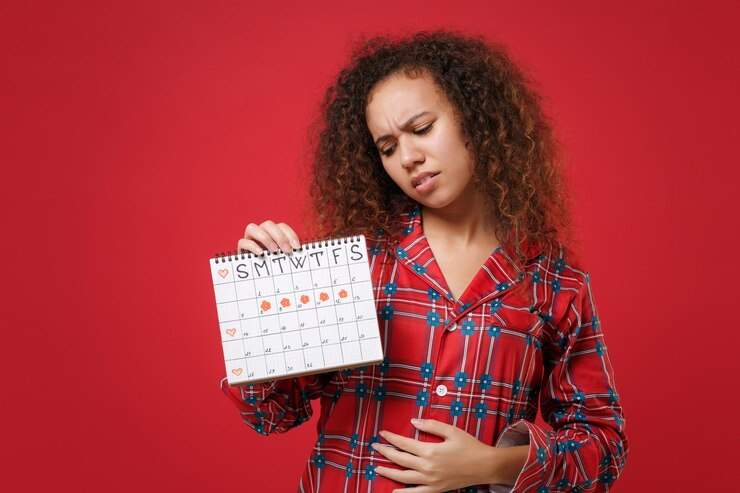Female infertility is the inability of a woman to become pregnant after one year of unprotected sex or to carry a pregnancy to term. The diagnosis of this condition can be challenging at times.
Several treatments depend entirely on the cause of female infertility. However, a majority of infertile couples conceive naturally without medical intervention. Therefore, it is imperative to identify and address the underlying cause of infertility to ensure successful conception and healthy pregnancy.
Is Female Infertility a Common Issue?
It is estimated that 12-15% of couples are unable to conceive after 1 year of unprotected sex. That makes infertility surprisingly common, yet it is rarely discussed. This is because there is still a stigma surrounding infertility, and many people feel ashamed or embarrassed to talk about it.
There is also a lack of education about infertility, which makes it difficult to recognize and address the issue.

What are the causes of female infertility?
Causes of female infertility can vary, ranging from lifestyle factors, such as obesity and smoking, to underlying medical conditions, such as polycystic ovary syndrome (PCOS) and endometriosis.
A few other causes that contribute to women’s infertility are:
- Hormonal issues- You may not be able to conceive because your body is not just facing the casual hormonal shifts that eventually lead to the release of an egg from the ovary and the thickening of the uterine lining.
- Cervical problems- A medical condition in some women makes it impossible for sperm to enter the cervical canal.
- Uterine troubles- You might have fibroids and polyps, which creates hurdles in getting pregnant. Uterine polyps develop when the endometrium (the uterine lining) undergoes excessive cell growth, while Fibroids develop in the uterus’s inner wall. Other dysfunctions of the uterus could also influence your fertility and ovulation.
- Damage to the fallopian tube– Scars from pelvic surgery, endometriosis, and pelvic infections can harm the tubes. As a result, sperm may not be able to reach an egg inside the tubes. The sperm and egg meet in the fallopian tube. The fertilized egg travel to the uterus from tubes and implants itself there.
- Bad eating lifestyle habits– Excessive eating or drinking, smoking, consuming drugs, and other unhealthy substances.
- Mystery Infertility- The causes of infertility in around 20% of infertile couples are still a mystery.
Symptoms of Female Infertility

These can range from physical issues such as irregular periods or ovulation to more subtle indications such as difficulty conceiving after a year of unprotected intercourse.
Common signs of female infertility include irregular menstrual cycles, difficulty conceiving, and pain during intercourse. The symptoms can result from hormonal imbalances, fallopian tube blockages, or ovarian cysts.
In addition, age can also be a factor, as fertility tends to decrease with age.
These symptoms include:
- Painful of heavy period
- Irregular menstrual cycles
- No periods
- Unusual or excessive pain during sexual intercourse
- Hormonal fluctuations (weight gain, skin issues, facial hair growth, hair thinning)
When to See a Doctor?
When you can ask for professional medical help depends on your age bar. After a year of trying, women under 35 who are struggling to get pregnant should visit a doctor.
If you are over 35, you should get help immediately (after six months of trying). Age impacts a woman’s ability to become pregnant.
The fertility of a woman in her 30s is only half that of a woman in her 20s. Regardless of gender, if you’ve got a risk factor that impacts fertility, you should seek help as soon as possible.
Management and Treatment
Infertility management and treatment are often complex and require a range of approaches such as medical, psychological, and behavioral interventions, as well as lifestyle modifications.
Additionally, there are various assisted reproductive technologies (ART) that can be used to help couples conceive, such as in vitro fertilization (IVF).
Lifestyle changes
Making small changes to one’s daily routine can have a big impact on overall lifestyle and health. These changes can range from adding in more physical activity to reducing sugar and processed foods, to getting more sleep and reducing stress.
All of these changes can help to improve one’s mental and physical health, and ultimately lead to a healthier lifestyle.
Assisted Reproductive Technologies (ART)
Assisted Reproductive Technologies (ART) refers to a variety of female fertility treatments in which both eggs and sperm are handled in a laboratory.
These treatments involve procedures such as in-vitro fertilization, intrauterine insemination, egg donation, and embryo donation.
These treatments are used to help couples who have difficulty getting pregnant or who have genetic disorders that can be passed on to their children.
Vitro Fertilization (IVF) is a type of ART in which eggs are removed from a woman’s ovaries and fertilized outside of the body with sperm. The resulting embryos are then transferred back into the uterus.
Infertility Treatments include:
- Medicinal treatment: Fertility drugs adjust hormone levels to stimulate ovulation.
- Surgery can be used to open up blocked fallopian tubes and to remove fibroids and polyps. Endometriosis surgery can double a woman’s chance of getting pregnant.
How you can prevent Female Infertility
You can protect your fertility by considering these preventative measures:
- Limit your exposure to toxins and eat a healthy, nutrient-dense diet.
- Don’t drink too much, and stop using drugs and smoking.
- Stay physically active.
- Get treatment for STDs
Conclusion
Female infertility can be temporary, only if you keep up an active and healthy lifestyle. Your infertility can be temporary, only if you keep up an active and healthy lifestyle.
A healthy lifestyle helps to reduce stress and maintain hormone levels, which can improve fertility. Eating a balanced diet, exercising regularly, and getting adequate sleep are all essential for keeping fertility levels healthy.


